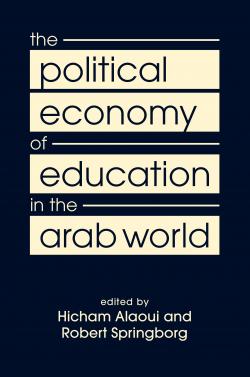The Political Economy of Education in the Arab World

Despite substantial spending on education and robust support for reform both internally and by external donors, the quality of education in many, if not most, Arab countries remains low. Which raises the question: why? The authors of The Political Economy of Education in the Arab World find answers in the authoritarian political economies that shape the architecture of national governance across the region. Presenting studies from North Africa and the Gulf region, as well as comparative perspectives from Asia and Latin America, they show clearly that efforts to improve education—and thereby enhance economic development and broaden the base of citizenship on which more stable and effective systems of governance can be built—will fail until ruling elites are no longer able to increase their political and economic power at the expense of the greater good.
List of Tables and Figures
Acknowledgments
1. The Political Economy of Education in the Arab World / Hicham Alaoui and Robert Springborg
2. Democracy and Education / Ishac Diwan
Part 1: Case Studies
3. Citizenship in Egyptian, Tunisian, and Moroccan History Textbooks / Roel Meijer
4. University Reforms in Egypt and Morocco / Florian Kohstall
5. Educational Policy in Sisi’s Egypt / Robert Springborg
6. The Impact of Poverty and Corruption on Educational Quality in Tunisia / Lindsay J. Benstead
7. US University Campuses in the Gulf Monarchies / Christopher M. Davidson
8. Foreign Scholarship Programs in Algeria and Saudi Arabia / Adel Hamaizia and Andrew Leber
Part 2: Comparative Perspectives
9. Lessons from Latin America / Merilee S. Grindle
10. Lessons from East Asia / Alisa Jones
Part 3: Conclusion
11. The Challenges of Educational Reform in the Arab World / Hicham Alaoui and Robert Springborg
Bibliography
The Contributors
Index
About the Book
Tema
Tag
Contenuti collegati
-
Evento06/05/2021
The Political Economy of Education in the Arab World
leggi tutto



